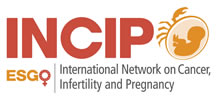In 2012, we reported on the first prospective follow-up study of children with antenatal exposure to chemotherapy. The results showed that the administration of chemotherapy after the first trimester of pregnancy has little or no impact on fetal health. There are not more or other congenital anomalies at birth and children perform as in the general population. We believe that the fear for chemotherapy should not be a reason to terminate pregnancy, delay maternal treatment or deliver preterm. We observed that preterm delivery is frequently encountered and believe that cancer treatment during pregnancy may help to prevent prematurity and its associated side effects. In some children, we observe a lower birth weight than expected.
Our group showed that pregnancy associated changes result in dilution of chemotherapy. In breast cancer patients, the available data suggest that this effect does not result in a worse prognosis.
We demonstrated that the placenta is a barrier and protects the fetus from chemotherapy. Drug levels in the fetus are lower when compared to the maternal concentration. Passage differs between different drugs and this depends on the drug characteristics.
Special emphasis was on the cardiotoxic effects of anthracyclins, drugs frequently used for breast and blood cancer. Although the drug is cardiotoxic, we could not observe signs of fetal heart damage after antenatal exposure to anthracyclins.






